
Ukraine to trigger economic growth in other countries – MEP Michael Gahler on European integration
Ukraine has the potential to make a significant contribution to the development of the EU, but only if the old structures do not return - a possibility that cannot be ruled out in the postwar period
This view is shared by Michael Gahler, a German member of the European Parliament and its Standing Rapporteur on Ukraine. In an interview with Espreso, Gahler shared his views on Ukraine's progress toward EU membership, emphasizing what has been done well and what still needs further improvement.
As a European Parliament reporter on Ukraine, what do you think are the biggest challenges that Ukraine faces in its EU talks right now?
Well, I am leaving the war issue aside, which is a nightmare for all state institutions and for the citizens, and it is ongoing. Leaving this aside, the challenges are related to adapting to this huge amount of regulations that the European Union consists of, which has been a challenge for all candidate countries in the past.
Ukraine comes out of these old Soviet structures and sometimes thinking. Like the Baltic states, which were also part of the Soviet Union, you can see in their examples — of course, they are smaller — how they have overcome it and embraced the EU opportunities that come with European Union membership. I think this is the chance, on the one hand. But, on the other hand, it is also a challenge.
For instance, your legal sector and judiciary definitely need to be reformed in order to properly apply existing European rules. When it comes to violations of the law, judges and prosecutors have to think in new ways and should no longer be prepared to accept bribes, as they did in the past, or to be dependent on powerful structures, whether political or economic. No one should think that they can buy the judiciary for their own purposes.
These are things that all the citizens — all the good willing citizens of Ukraine — want. These are the proclaimed objectives of both the government and the opposition, and of all the parties, where there is broad consensus with regard to EU integration. But in practical terms, these are real challenges that lie ahead, and we are willing to be supportive with our measures. The EU has hundreds, if not thousands, of experts on the ground, helping to address these challenges.
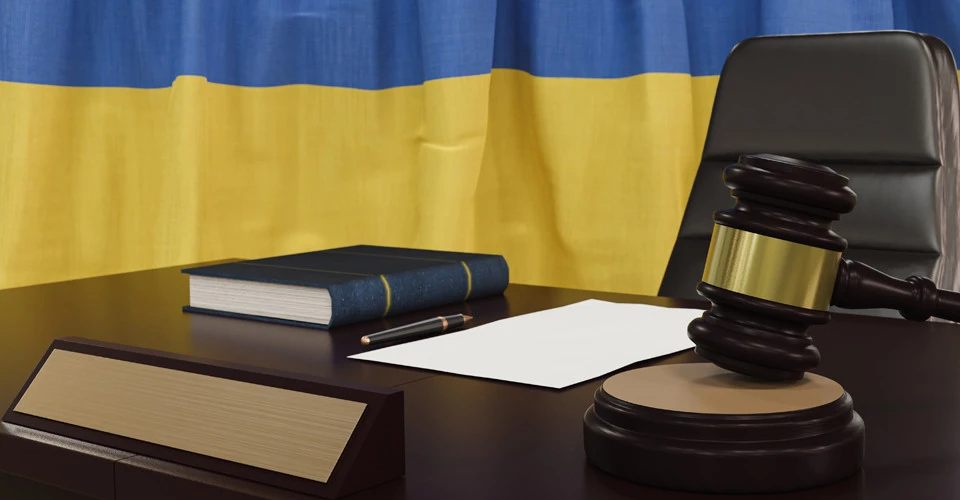
photo: Getty Images
Talking about the key EU principles that you mentioned, how would you describe Ukraine's progress in attempts to implement them?
I think, in the fight against corruption, there have been multiple measures and progress with the institutions that have been created, along with the transparency requirements for politicians and others. I am speaking of NABU, SAP, the High Anti-Corruption Court. These are real success stories. Of course, they do not please everyone, especially not those who see that they can no longer continue in the old way. Another example is Prozorro, which ensures transparency and fairness in public procurement.
I also think decentralization has been a great success. The new hromadas that have been formed were necessary because the old structures were simply too fragmented, with too many small cities and villages, which required a huge administrative overhead. They have now been reformed and are working well. With the decentralization of competences also came the decentralization of finances. For instance, if the income tax or commercial tax stays largely at the local level, it serves as an incentive for the local mayor not to make deals with powerful people.
Also, in the completely different area of healthcare, various reform steps are still in the making. The aim is to establish a healthcare system that is financially sustainable but also delivers to the people and does not make them dependent on bribes, as it was in the old days.
I would also consider digitalization to be an extreme success story. Ukraine is ahead of many EU countries in this area, largely due to the needs created by the war of aggression. Many state services have been moved to the cloud, so they cannot be bombed by the Russians. Services now function through Diia, the famous app, where a lot can be settled — a huge achievement compared to many other European countries. So, these are just some of the areas where I would define progress.

Of course, there are also challenges because some of the old guys still think they can reverse these changes. But I'm confident that will not be allowed, either by the citizens or by the majority in the Verkhovna Rada.
Today, I checked how many people in Ukraine are now supporting the EU membership process. According to a survey conducted in November 2024, the number was 75%, compared to 85% last year in November. So, it has dropped. The reason is actually clear: the war, the ongoing hybrid Russian war, the standard of living, and poverty. My question is, what can we do to rebuild people's trust in the EU?
I think it is natural that in a country at war, where people’s main concern is survival, their focus is on their loved ones, some of whom may be on the front lines, or in the worst case, have even been killed. It is natural that their prime concern is not about any technocratic or detailed support from an institution that, I would say, even many citizens within the European Union don’t fully understand.
It is a matter for both the government and civil society — not just the government, but the pro-European political parties and informed civil society — to show people certain simple, comparative figures. They should compare the situation before entering in Ukraine with that of countries that were in similar positions. Specifically, countries that were part of the Soviet Union at the time, such as Estonia, Latvia, and Lithuania. For instance, Lithuania, which is much smaller than Ukraine but had to do essentially the same things before joining.
Lithuania's GDP per capita was just 35% of the EU average before joining. The EU average is not just Germany or Luxembourg, but the EU overall. After 20 years of membership, Lithuania's GDP per capita reached 90% of the EU average. This means Lithuania has outpaced many countries inside the old EU.
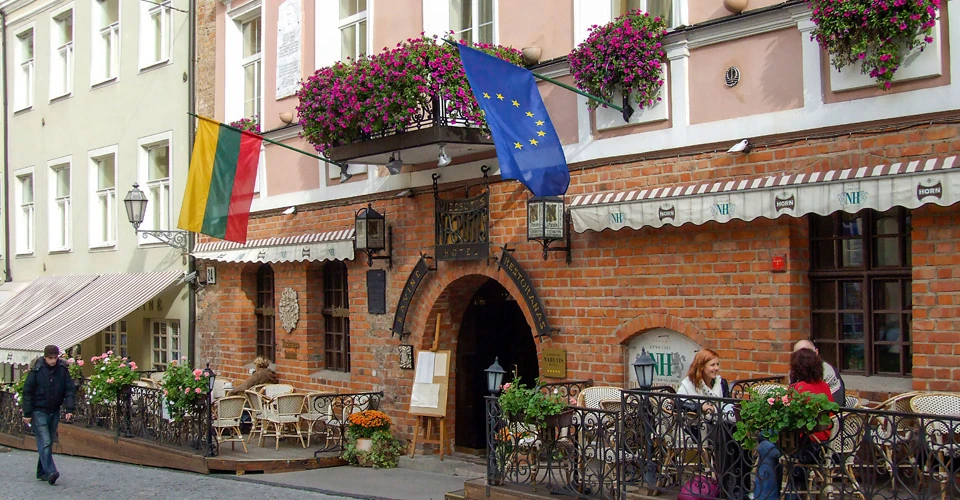
Vilnius, photo: Getty Images
This shows, in this example, and it applies to all EU countries, that there is not a single country that is worse off today than it was before joining the EU. We see enormous increases in all relevant parameters for the better.
The same will, of course, apply to Ukraine. And I would even go a step further. When this dreadful war ends and reconstruction starts, in parallel with the EU accession process, I believe Ukraine, as a large country, will trigger economic growth in other countries as well. We will all be contributing to and actively involved in this reconstruction. In parallel, Ukraine will apply the EU requirements step by step, and eventually, we will see that Ukraine will be an asset for us, not a burden.
Ukraine has so many positive features in different areas: from agriculture, which presents both a challenge and an opportunity, to industry. You will have an excellent arms industry. Unfortunately, we are in a moment where we must be prepared to stand against this aggressive Russia. After the war, you will have the only army that knows how to fight. You will have an arms industry that we all need, not only for you but for all of us.
In digital terms, Ukraine has already been very good before the war. There are other areas where Ukraine can contribute to the EU and all of us, and it will be mutually beneficial. So, I really see this potential, provided that old habits and structures don’t reclaim the country, which, in a post-war situation, can never be ruled out.
In the post-war situation, there will be blame games — political arguments about what was right and what was wrong. There will be new heroes who will be cherished by the people but may not necessarily have the knowledge to rebuild the country. Fighting an enemy is one thing, but rebuilding a country is another. It requires a lot of consensus, a lot of compromise for the common good.
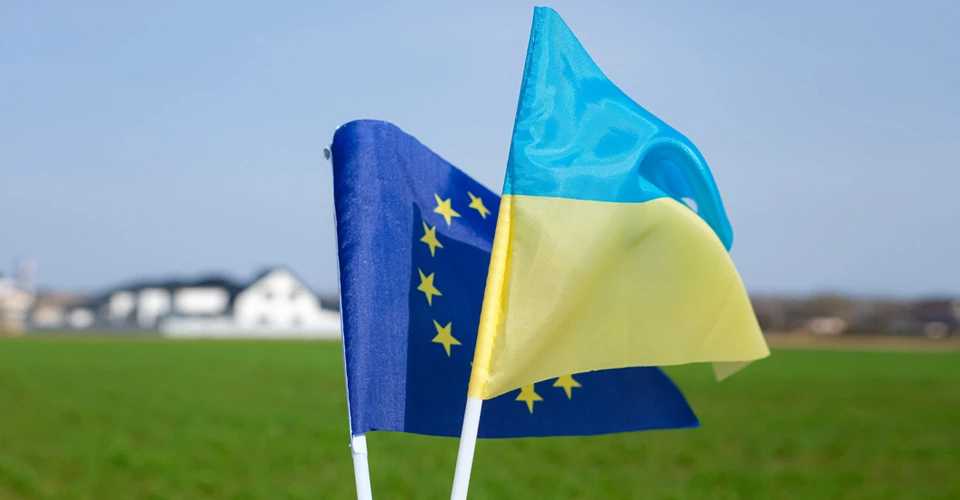
photo: Getty Images
These are things — compromise, consensus-building — that are not so common in Ukraine. Even during this war, personally speaking, I would have expected, as has happened in many countries that have been attacked, that there would have been a government of national unity. I mean, there is unity in the sense that Ukrainians are fighting this enemy, but that unity is not fully reflected in the government. That was the government’s choice. I take note of that, and we support Ukraine regardless of the government setup when it comes to the EU agenda and your defense.
What lessons can Ukraine learn from the experiences of other countries when joining the EU, and what mistakes should be avoided?
I can only recommend that Ukrainians and the relevant bodies working on this process closely communicate with those who still have vivid memories of their own EU accession experiences. This means learning from countries that joined more recently, such as Croatia, Romania, and Bulgaria. It’s always good to listen to them, and when there are doubts about specific issues, it’s useful to ask those who dealt with similar challenges during their own accession process.
Another thing that has been quite successful is what we call "twinning partnerships". In these partnerships, institutions from one country are paired with institutions from an EU member state to help implement the required reforms and administrative practices. This approach has proven very successful in various policy fields. I don’t need to enumerate all of them, but in general, everything related to public services and public institutions has its counterpart in the European Union. Ukraine should look at best practices and learn from those who are not functioning well. However, the opportunity exists to focus on those that are well-equipped and well-functioning, so Ukraine can learn from them and avoid repeating mistakes made by others.
I believe many of our member states will be eager to contribute and share their own mistakes as well. Politically, it’s important to always explain why reforms are necessary. The argument should never simply be, "because the EU wants it." If you reduce it to that, it can create antagonism and negative feelings. Yes, some reforms might cause hardships for people or businesses in the short term, but if they are well explained and show long-term benefits, people will understand and accept them. It’s important to explain the rationale behind the reforms, not just say, "The EU wants this." Once people understand why the reforms are needed, they will be more likely to support them. So in the end, it’s about making you compatible with the rest of the European Union.
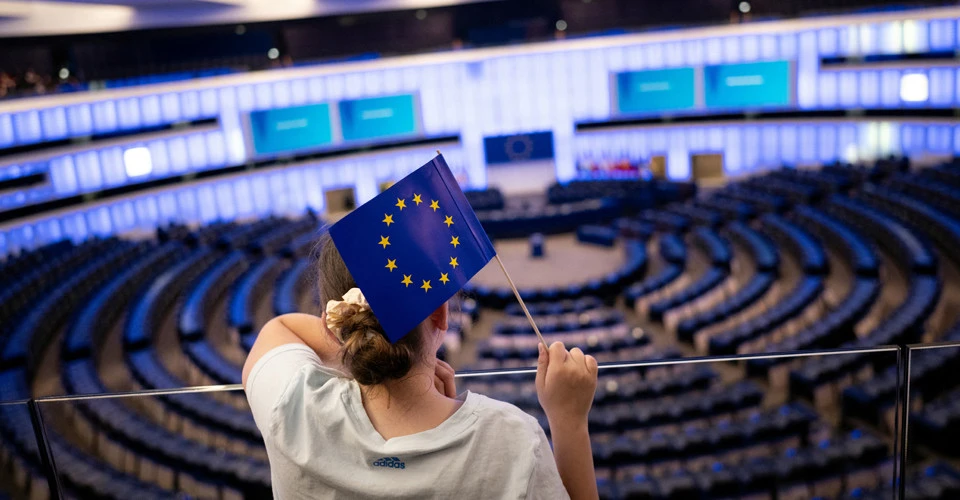
photo: Getty Images
Also, it’s important not to give the impression that this process is a negotiation in the sense that we eventually meet in the middle. No, in the end, you’ll be sitting on the side of the others.
There are possibilities for transition periods, both in favor of existing member states and in your favor. For instance, in agriculture, I could imagine some flexibility, or in certain environmental requirements that could extend for 10 to 20 years, depending on the challenges you face. These transition periods on either side will facilitate the process, but in the end, you will have to accept and fully integrate everything. As I said, there is not a single country that is worse off now than it was before.
In Ukraine’s case, once the war ends and reconstruction begins, I am confident that Ukraine will be on the bright side of Europe, not the dark side. Russia will not only lose militarily, but it will also fail to win the hearts and minds of the people.
You also mentioned the issue of agriculture. We have seen a lot of protests on the Polish-Ukrainian border, and sometimes there is a Russian trace in these protests, sometimes not. How should we talk to these farmers?
I think this should have been handled better by both sides. The original purpose, if we recall, was because the Russians had blocked the sea route, and there were urgent deliveries needed for countries in the Middle East and Africa. The idea then was that, since the sea route was blocked, we would transfer the goods by rail and road through Europe to the final destination. The agreement with the Russians came later, and this temporary arrangement was a solution. But I think it was perhaps a mistake on our part to declare all these goods as EU-compatible, even though, in substance, they were.
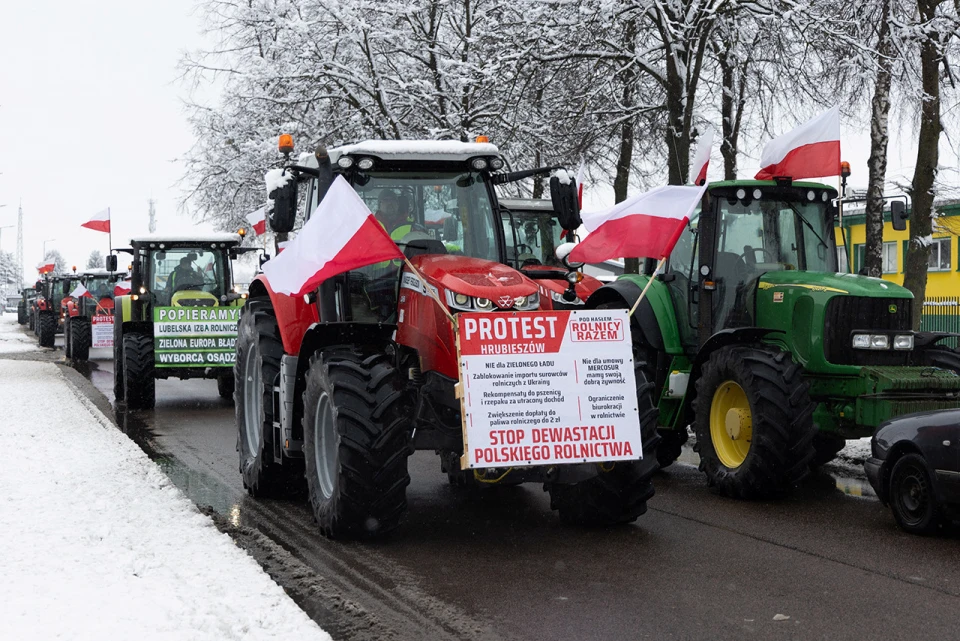
We also saw some bad behavior from the Turkish side. In exchange for facilitating this transfer, they required very low prices for your grain when it was sold in Turkey. The Turkish traders then made huge profits because they sold it at market prices. So, there were unfair practices with regard to Turkey, but also some unfortunate decisions on our side that created bad feelings towards Ukraine, which was unjustified. I mean, you're in a war, and you need to survive. We wanted to facilitate your exports, but as I said, this should have been organized differently.
I think we still have a lot to learn. Through talks and dialogue, we can diffuse tensions and address the necessary issues.
You said that there is no single country in the EU that is worse off after joining, but we understand that there is a significant development gap between Ukraine and other EU countries. How can we effectively integrate into the EU?
Well, I think we will find creative ways to do this step by step, and we can start even before membership. For example, we can include you in existing programs designed for students, like Erasmus, or in other areas of economic cooperation. Right now, there is a huge discussion about defense cooperation between our companies and yours. I would also say that in research programs and other areas, such as trans-European networks, we can start connecting your railway system to ours.
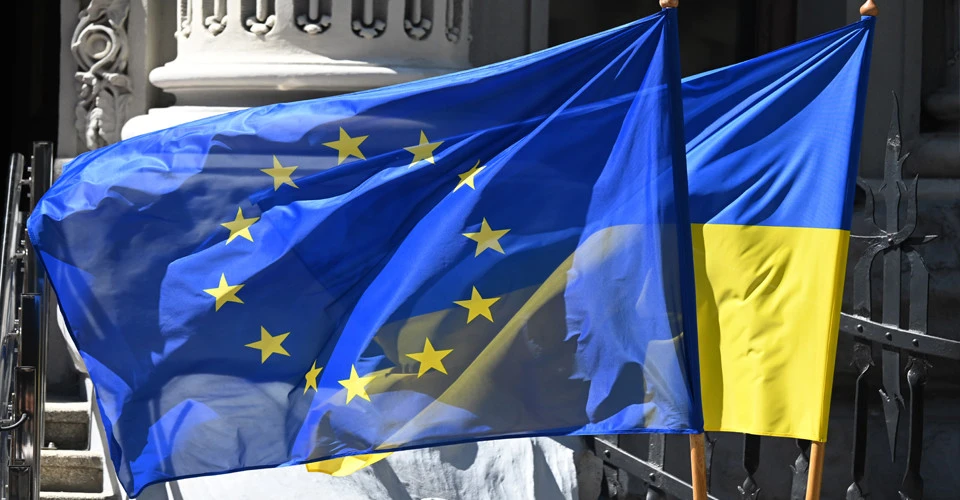
There are huge programs where the connectivity between the European Union and Ukraine can be expanded. These will benefit you fully once you are a member. These are all step-by-step integration processes. And even now, there are areas that might require transitional regulations that favor both you and us, depending on the issue being dealt with. I have little doubt that once this process gains speed and efficiency, after the end of this dreadful war, it will be successful.
The material was published as part of the “Democratic Integration, Resilience, and Engagement” (Ukraine-DARE) project, implemented by Democracy Reporting International (DRI) in cooperation with the Reanimation Package of Reforms coalition and the Center for Political and Legal Reforms with the financial support of the Federal Foreign Office of Germany. The project aims to facilitate the approximation of Ukrainian legislation to the EU norms, build a dialogue on the challenges to democracy in Ukraine during the war, and promote civic engagement of young people. The opinions and views expressed in this material do not necessarily reflect the position of the Federal Foreign Office of Germany.

- News













































